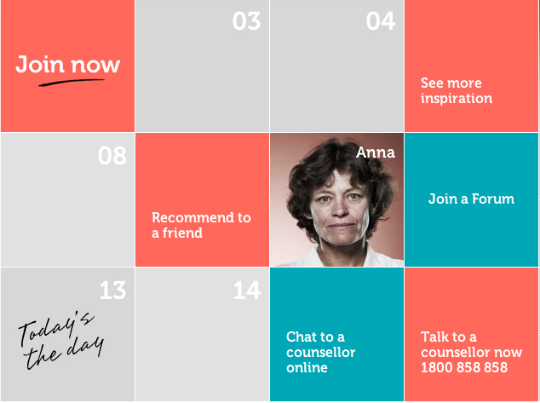This post is sponsored by Nuffnang.
Have you seen the Victorian Responsible Gambling Foundation‘s latest campaign, the Fight For the Real You 100 Day Challenge and Gambler’s help? The challenge encourages people to take 100 days to take control of their gambling. It is not pushing a hard anti-gambling message, but rather it wants to help those who need it regain control of their gambling. For some participants this may mean deciding not to gamble, for others it may be reducing the amount they spend on gambling each week or how often they gamble.
The Fight For the Real You 100 Day Challenge has an independent website where people can sign up to complete the challenge. While to promote the challenge some participants have shared their journey over the 100 days, the challenge is private and any information you added is not be used to be able to identify participants in anyway.
The benefits of signing up for the challenge are significant. It gives participants a place to privately:
- Set personal goals to achieve
- Work out how much money and time they spend gambling
- Receive weekly tips and advice
- Rate how they are feeling
- Record or write a private video diary
- Learn more about the range of free help available
- Use a variety of counselling options
Anna’s Story
Anna undertook the Fight For the Real You 100 Day Challenge and shared her journey. They put together a video collation of Anna’s experience with the challenge and it is incredibly powerful.
It is just under 10 minutes long and shows her struggle to find “the real Anna”. It is beautifully and poignantly honest. You feel her pain and disappointment when she relapses, but also feel her hope and possibility as she continues the fight to find herself. {If you are reading via email, please click through here to watch the video.}
Whether or not you have a gambling problem, it is easy to relate to Anna’s vulnerabilities, her self doubt and the fatigue that can set in when you are trying so hard to make positive changes to you life.
It was not only Anna who was affected by her gambling either, it also had a significant impact on her son. Hearing her son say one of the first things he did when he turned 18 was to go to a venue, made me think about how much our behaviour as parents impacts on our kids, in both positive and not so positive ways.
Anna’s story shows how important it is to not keep issues like gambling to yourself and for those who have friends and family who may be having issues with gambling, how important it is to be there to support them through their fight. It’s estimated that as few as 10% of people with gambling problems seek help, due to the social stigma and shame attached to the problem. How we respond to those around us when they bring up issues with gambling will have a significant impact on whether or not they will seek out professional help.
Signs someone may have a problem with gambling
In Australian culture where gambling is seen as a normal form of entertainment, it can be hard to know when a friend or family member may have crossed the line from entertainment, to having a problem with gambling.
Gambling help online highlights some warning signs to help determine if someone you know may need help to manage their gambling:
Financial signs
Some common financial warning signs that someone may have a problem with gambling include:
- Money missing from bank accounts, wallet/purse or money jar
- Household items and valuables missing
- Regularly short of money even though they earn a wage
- Borrowing money on a regular basis
- Having many loans at the one time
- Being secretive about financial records or payslips
- Unpaid bills/disconnection notices
- Lack of food in the house
Mood and behaviour signs
When someone develops a gambling problem, there are often noticeable changes to their mood and behaviour, including:
- Becoming withdrawn from others/family events
- Performance at work is affected
- Seeming worried, agitated or upset for no apparent reason
- Reporting feeling hopeless, depressed, frustrated or suicidal
- Changes in personality – sleeping, eating, or sexual relationship patterns
- Controlling and/or manipulative behaviour
- Using threats, lies or charm to manipulate others
Changes in a person’s mood and behavior can impact significantly on work, study and personal relationships.
Time related signs
Some common time-related signs that could indicate someone has a problem with gambling include:
- Spending more and more time gambling
- Being secretive about unexplained absences
- Often being late for commitments
- Over-using sick days and days off
- Taking an unusual amount of time for simple tasks (e.g. taking two hours to get the paper from corner store).
Source: Gambling help online
What to do next
If from reading the signs you feel someone you know needs help with their gambling, the first thing to do is to determine what stage they are at with their gambling, then you can work out what the most appropriate type of support is available.
Once you have determined the phase, you can then source the right strategies to help here, which could include speaking to an online counsellor or phoning the helpline on 1800 858 858.
Another option may be making them aware of and encouraging and supporting them to take on the Fight For the Real You 100 Day Challenge. This could be the kick start they need to help them regain control of their gambling.
Has gambling had an impact on your life?
Free, confidential help and information is available for gamblers and their families, 24/7 through Gambler’s Helpline 1800 858 858 or Gambling Help online gamblinghelponline.org.au.

